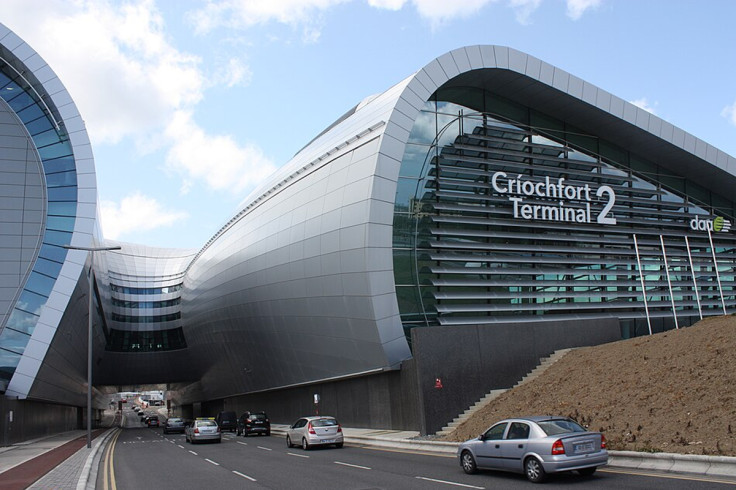Dublin Airport Chaos Enters Day 3: Officials 'Rebuild Servers From Scratch' After Ransomware Attack
Flights at Terminal 2 remain disrupted as experts rebuild critical systems from scratch following a ransomware attack that crippled check-in and baggage services.

Passengers at Dublin Airport endured a third day of disruption on Monday after a ransomware attack crippled critical check-in and baggage systems in Terminal 2.
With airlines resorting to manual workarounds for boarding passes and bag tags, officials admitted they were forced to rebuild servers from scratch. No timeframe has yet been given for a full resolution.
Timeline of Dublin Airport Disruption
While airlines operating from Terminal 1 continue largely unaffected, Terminal 2 has been in turmoil since Saturday, when a separate security scare led to an evacuation. Gardaí, assisted by the Irish Army's explosive ordnance disposal unit, investigated a suspicious item in airline luggage before clearing the site.
On Sunday, US-based IT experts were flown in to support the recovery. Aer Lingus confirmed that flights would face ongoing disruption into Monday and advised customers to check in online and bring digital or printed boarding passes. Passengers carrying 10kg bags can proceed directly to their gate, while those with 20kg bags must use bag-drop kiosks — systems now slowed by the outage.
Airlines Struggle With Manual Systems
Graeme McQueen, spokesman for the Dublin Airport Authority (DAA), said teams were continuing to support airlines on Monday as they worked through the backlog. Staff have been issuing handwritten bag tags and manually processing boarding passes to keep flights moving, though delays remain widespread.
Passengers have reported long queues and confusion at Terminal 2, which serves Aer Lingus's transatlantic flights. Airport authorities have urged travellers to arrive early and monitor airline alerts.
About the Cyber Attack
The Europe-wide technical issue is the result of criminals leveraging ransomware to disrupt airports worldwide. ENISA, the European Union Agency for Cybersecurity, told Reuters that the malicious software was used to scramble automatic check-in systems.
McQueen said that it affected servers in the terminal, which required them to rebuild the servers from scratch. In addition, RTX, which owns Collins Aerospace, a software provider, noted their awareness of a 'cyber-related disruption' to its system in 'select airports'.
Collins Aerospace, which provides check-in and boarding systems for several airlines across multiple airports globally, is experiencing a technical issue that may cause delays for departing passengers.
— Heathrow Airport (@HeathrowAirport) September 20, 2025
While the provider works to resolve the problem quickly, we advise… pic.twitter.com/f68e9CbIlu
The company aimed to resolve the issue as quickly as possible, identifying the source of the problem in its Muse software. This allows different airlines to use the same check-in desks and boarding gates at an airport, instead of requiring their own.
Unfortunately, the company has yet to disclose what went wrong or how long the outage is expected to last. Ciaran Martin, former head of the National Cyber Security Centre, told the BBC it could take 'days to recover'.
Martin also said it was unwise to speculate about who was responsible, given the multiple attacks in recent months. 'Sometimes when it's criminals, they will often demand a ransom to unlock the systems, and they will often publicise that, but that hasn't happened yet,' he added.
What is Muse?
Muse is a flexible IT platform that integrates passenger data, baggage details, and security requirements into one digital framework. It allows airlines to switch desks and gates on demand, making airport operations more efficient. Traditionally, carriers operated separate check-in areas, which proved costly and inflexible — particularly at hubs with dozens of airlines.
Its reliance on interconnected servers, however, also makes it a potential weak point. When compromised, disruption cascades quickly across airlines and terminals.
Muse was developed by Collins Aerospace, which is part of defence contractor RTX, that airlines use to tap into the same hardware and back-end systems. RTX acknowledged a 'cyber-related disruption' but did not provide details on the breach or timeline for recovery.
The software essentially streamlines these processes into a single digital framework. Traditionally, an airline would manage its own dedicated check-in area with branded kiosks and staff.
However, this proved inefficient with its rigidity and expenses with manpower and effort. This is especially true for airports hosting dozens of carriers.
© Copyright IBTimes 2025. All rights reserved.





















